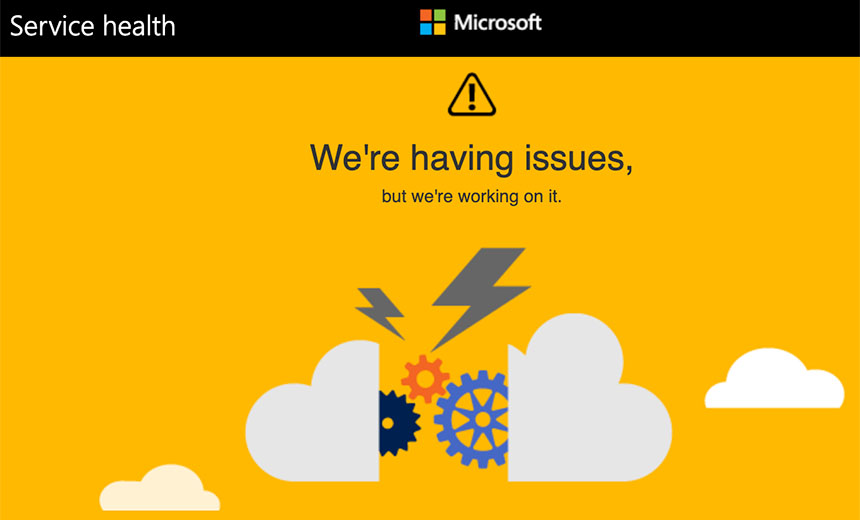Microsoft services went dark for thousands of users over the weekend, locking people out of Outlook, Exchange, Teams, Microsoft 365, and Azure. Before Microsoft identified and resolved the issue, the outage primarily affected users in major U.S. cities, including New York, Chicago, and Los Angeles.
What’s Happening & Why This Matters
Microsoft’s Services Go Down

Microsoft’s outage prevented users from accessing core services, disrupting work and communication for thousands. Web monitoring platform Downdetector registered 37,000 reports of Outlook issues and 24,000 complaints about Microsoft 365. Teams also saw interruptions, though on a smaller scale.
While most of the impact was concentrated in the United States, users in other regions also noticed disruptions. The outage started on March 1, with a peak around 4 p.m. ET, before Microsoft rolled out a fix.
A “Problematic Code Change”
Microsoft has yet to provide in-depth technical details, but its official statements blamed a problematic code change for the disruption. The company quickly rolled back the update, restoring access to its services.
Microsoft has experienced more extensive service failures in recent years. In July 2024, a CrowdStrike-related outage knocked out 8.5 million Windows computers, making it one of the biggest tech failures in recent memory. Compared to that, this Microsoft 365 outage was relatively mild, though frustrating for those affected.

Slack Also Had Issues
Microsoft wasn’t the only tech giant dealing with service issues this week. Slack, a popular workplace messaging app, suffered a major outage on Wednesday, February 28. The disruption locked out some users and caused problems with workflows, threads, messages, and API-related features.
Both outages sparked frustration across social media as users vented about the reliability of cloud-based communication tools.
TF Summary: What’s Next
Microsoft has resolved the issue and restored its services, but questions remain about the reliability of cloud-based platforms. Businesses and individual users rely on services like Microsoft 365, Outlook, and Slack for essential work, and outages like these continue to disrupt productivity. Microsoft will likely review its code deployment strategies to prevent similar incidents. Meanwhile, users may start looking at alternative solutions to avoid future disruptions.
— Text-to-Speech (TTS) provided by gspeech


